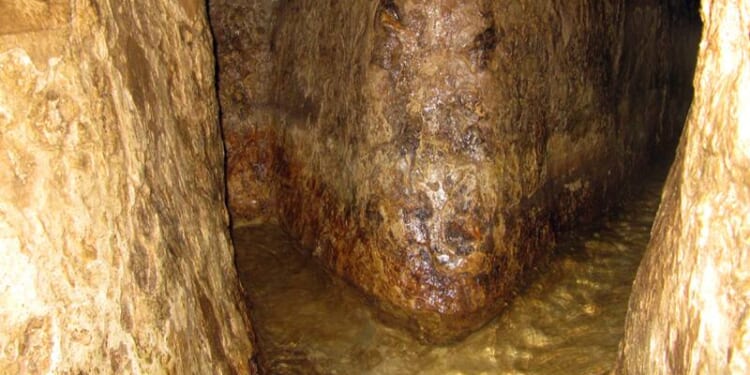For centuries, skeptics have tried to separate the Bible from history. They dismiss its stories as myth, its heroes as legend, and its promises as allegory. Yet the stones of Jerusalem continue to cry out with testimony, and among the most powerful is the Siloam Inscription. Carved nearly 2,700 years ago during the reign of King Hezekiah, this tablet was discovered in Jerusalem’s water tunnel in 1880. Today, however, it sits not in the city of its birth but locked behind glass in Istanbul, claimed by Türkiye as a possession of empire.
The question of its rightful home is more than a debate over archaeology. It is a question of truth. When Israel asks for the return of the inscription, it is not simply requesting an artifact but asserting the undeniable bond between the Jewish people and their eternal capital. Türkiye resists, insisting the tablet is Ottoman property, transferred long before the modern State of Israel existed. But history cannot be reduced to paperwork or legalistic claims. What matters is what the stone itself proclaims: that Jerusalem has always been the city of the God of Israel.
The inscription may be modest in size, but its meaning is vast. Written in paleo-Hebrew, it describes how workers digging Hezekiah’s tunnel from opposite directions finally broke through and met in the middle, securing a water supply to withstand an Assyrian siege. This moment is recorded in Scripture itself in 2 Kings 20:20 and 2 Chronicles 32:30, where Hezekiah’s preparations for Jerusalem’s defense are detailed. Here, history and the Bible converge. This is not myth or allegory but an event etched in stone, a king whose reign is documented and a tunnel that still carries water today.
No Man’s Land
The story does not end with Hezekiah. Centuries later, the Pool of Siloam became the setting for one of the most striking miracles of the New Testament, when Jesus sent a blind man to wash and receive sight (as told in John 9). The same waters once channeled to preserve the city became waters of healing and revelation. The inscription and the pool together form a bridge between the Old and New Testaments, binding together Israel’s story of survival with the story of salvation itself.
Türkiye’s refusal to return this stone speaks to something larger than national pride. It reflects an ongoing effort to strip Jerusalem of its biblical and Jewish identity and to treat it as a city that belongs to no one in particular. Turkish scholars claim the inscription cannot prove any legitimate connection. Yet this is the same reasoning used by those who deny that the Temple ever stood on Mount Zion, who claim that Jewish presence in Jerusalem is recent or manufactured, and who erase centuries of history in service of political ideology.
Clearly Israeli
The truth is written clearly. The Siloam Inscription is in Hebrew. It is from Jerusalem. It details the reign of a Jewish king memorialized in the language of his people in the city of their God. It is not Turkish, not Ottoman, not Islamic. It belongs to Israel because it belongs to the story of God’s people. To deny this is not simply to contest politics but to sever history from its roots and faith from its foundation.
This is why the struggle for the Siloam Inscription resonates far beyond museums and academic circles. The question is whether the world will stand with truth or allow false narratives to prevail. The path of Christ and the story of Israel are both grounded in Jerusalem, not Istanbul. The miracle at the Pool of Siloam happened in the shadow of the very tunnel Hezekiah carved. To detach these stones from their rightful place is to ignore the living testimony they carry.
When the Pharisees once demanded that Jesus silence His followers, He replied, “If they keep quiet, the stones will cry out” (Luke 19:40). The Siloam Inscription is one of those stones. It cries out that Jerusalem is not merely Israel’s political capital but the living proof of divine faithfulness. Türkiye may display it in a museum, but it cannot contain the truth it declares. Jerusalem has always been, and will always be, the city chosen by God.
Amine Ayoub is a policy analyst and writer based in Morocco.











